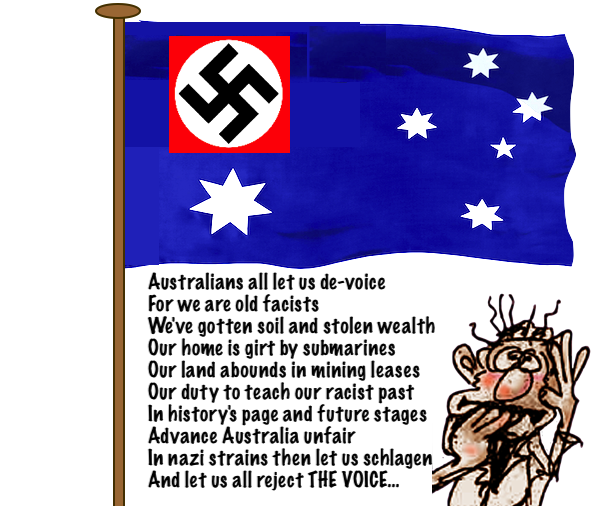Search
Democracy Links
Member's Off-site Blogs
vote YES for the voice......

Ken Wyatt made history when he became the first Indigenous member of the House of Representatives in 2010.
In 2019, he became the first Indigenous federal cabinet minister when he was appointed minister for Indigenous Australians in the Morrison government.
On Thursday, he made history again, quitting the Liberal Party over its decision to oppose the Voice at the referendum.
Wyatt, who lost his Western Australian seat at the election, had stood beside Prime Minister Anthony Albanese last month as Albanese announced the wording for the referendum.
In government, he had battled, against internal Coalition headwinds, to advance Indigenous recognition and a Voice.
Wyatt is a cautious, patient man. That he has left the Liberal Party is an indictment of his former colleagues. He told The West Australian:
"I still believe in the Liberal Party values, but I don't believe in what the Liberals have become."
A day earlier, faced with a choice on the Voice between the mood in the parliamentary Liberal Party and the mood in middle Australia, especially among people under 40, Opposition Leader Peter Dutton opted to go with his party.
We can't predict what the Liberals' rejection of the Voice will do for the referendum, or, ultimately, for the opposition and Dutton's leadership.
Certainly it will be unhelpful for the Yes case. Dutton might be out of sync with the community vibe on this issue, but his becoming a leading light of the No campaigners – a rag-tag lot at present – will encourage a swag of voters to have doubts and vote No. The question is, how many?
The latest Newspoll shows the Yes vote with an overall majority and winning in a majority of states – which it has to do in order to pass.
But the national Yes vote was only 54 per cent, and that is before the majority has been stress-tested by a campaign. There is a very long way to go in this marathon.
First Nations people's call for the Voice has been extraordinarily hard for the Liberals to handle, and not just for those from the right, like Dutton.
Who can forget Malcolm Turnbull, prime minister at the time of the Uluru Statement from the Heart, declaring that a Voice would be seen as a "third chamber" of the parliament? (Turnbull has sent a "big hug" to Wyatt after his resignation.)
Dutton is often a pragmatist. Thus he was a driver of finding a way through the marriage equality issue.
He hadn't been a supporter of gay marriage, but for him, settling the issue was more important than his personal view. Hence he promoted the idea of the postal plebiscite, admittedly a second-best route to just legislating first up, but a way of getting the job done.
If "Peter the pragmatist" had been uppermost, you'd think he would have sought a non-confrontational way through the Voice issue.
Senior Liberals could have been left to make up their own minds, as in the republic referendum.
Dutton could have said he had reservations about central features of the government's proposal, but for the greater good – for the unity of the country and the pursuit of reconciliation – he would be voting Yes, although not campaigning.
Critics may or may not be right about the risks in the current wording of the constitutional change, which provides for the Voice to make representations to executive government. Equally, they may or may not be correct in claiming the Voice would make little difference to closing the gap.
But when Indigenous people have invested so much in the Voice, the question becomes: is the downside of denying it to them more damaging than the possibility of it being risky or impotent?
- By Gus Leonisky at 8 Jul 2023 - 10:39am
- Gus Leonisky's blog
- Login or register to post comments
Recent comments
11 hours 38 min ago
16 hours 40 min ago
17 hours 39 min ago
19 hours 9 min ago
20 hours 57 min ago
1 day 7 hours ago
1 day 7 hours ago
1 day 8 hours ago
1 day 14 hours ago
1 day 15 hours ago